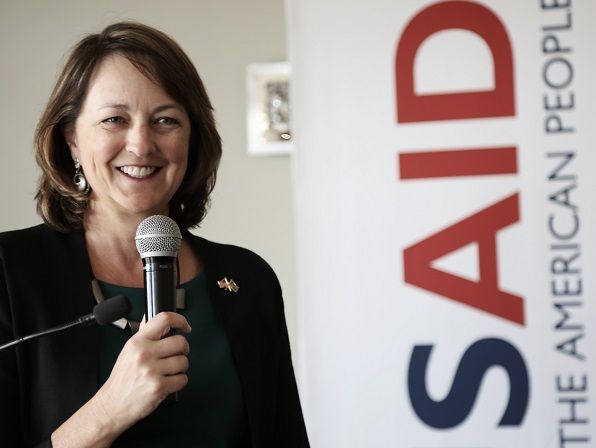
How important is a dead elephant in Bwabwata for a criminal court in Luanda?

“By its very nature, illegal wildlife trade is conducted across borders and addressing it requires international and regional cooperation,” US Ambassador to Namibia, HE Lisa Johnson last week told a law enforcement workshop for prosecutors and magistrates from five southern African countries.
The Regional Judiciary and Prosecutor Workshop was sponsored by the Combatting Wildlife Crime in the Kavango Zambezi (KAZA) area programme, in turn funded by the US Government through the United States Agency for International Development, USAID. The workshop was conducted by representatives of the World Wildlife Fund, TRAFFIC and the KAZA secretariat. Legal officials from Namibia, Botswana, Angola, Zambia and Zimbabwe attended.
The focus was on judicial capacity, helping prosecutors and judges to succeed when prosecuting wildlife crimes. In addition, the presenters addressed the impact of these crimes on regional security, stability and in a broader context, on economic development. Eradicating wildlife crime requires international cooperation, stated the Ambassador.
She reiterated the US Government’s commitment to extinguish wildlife crime by strengthening domestic and global law enforcement, reducing demand for illegally-traded wildlife, both at home and in the markets, and strengthening partnerships to combat poaching and trafficking.
An important point is that wildlife crimes in the KAZA area are by definition transborder crimes, and further, that it is only the perceptible end of several international chains of organised crime.
Prosecutors and magistrates from the KAZA countries identified barriers to transboundary cooperation and discussed workable options to improve prosecution and adjudication of these cases.
Botswana delegate, Daniel Pitso, confirmed the need for legal cooperation, saying “a siloed approach can not and will not achieve anything in our fight against wildlife crime. We need greater collaboration.”
The Combatting Wildlife Crime programme serves the full law enforcement chain from anti-poaching and anti-trafficking to prosecution of the middle men and isolation of the large crime syndicates driving these crimes by buying and smuggling the contraband.
Much emphasis is placed on ground-level detection and prevention by including local communities who are the custodians of the wildlife and who must benefit from this natural resource.












































